Venture Catalyst Challenge: Meet Imperial’s most exciting new student startups

Five student startups will compete for a £20,000 top prize in the final of Imperial’s flagship entrepreneurial competition later this month.
With ideas such as technology to use waves for renewable energy and using artificial intelligence for intellectual property software, the finalists of this year’s Venture Catalyst Challenge (VCC) will be battling to be named Imperial’s most promising new startup.
The five teams will pitch their ground-breaking ideas to a panel of industry judges in the hope of winning the top share of a £100,000 pot of prize money to push their business to the next level.
The teams’ ideas come from five key subject areas: AI & Robotics, Creative & Consumer, Digital & Fintech, Energy & Environment, and Health & Wellbeing.
VCC, which is the College’s largest entrepreneurial competition for students and alumni, is celebrating its tenth year of innovation this year. Over the past decade, the competition has provided crucial support to allow innovators to develop their ideas for commercialisation.
This year’s Grand Final will feature a keynote speech from Rodrigo Garcia Gonzalez, the co-founder of Notpla – a notable VCC success story who became the first UK winners of the Earthshot Prize in 2022, winning £1,000,000 for developing a seaweed-based biodegradable alternative to plastic.
The finalists for this year’s competition are:
AI & Robotics (sponsored by I-X): Wateraware Collective
Pollution is a major issue in English waterways, but a lack of reliable data makes it hard to accurately track and report incidents, according to team Wateraware Collective. Led by recent graduates Luisa Charles and Ryan McClure, the team has created a modular sensing unit which uses low-cost sensors and machine learning algorithms to provide accurate and uninterrupted data on pollutant levels.
The device can be attached to dry bags, kayaks and paddleboards, allowing people to passively collect water quality data while doing other activities.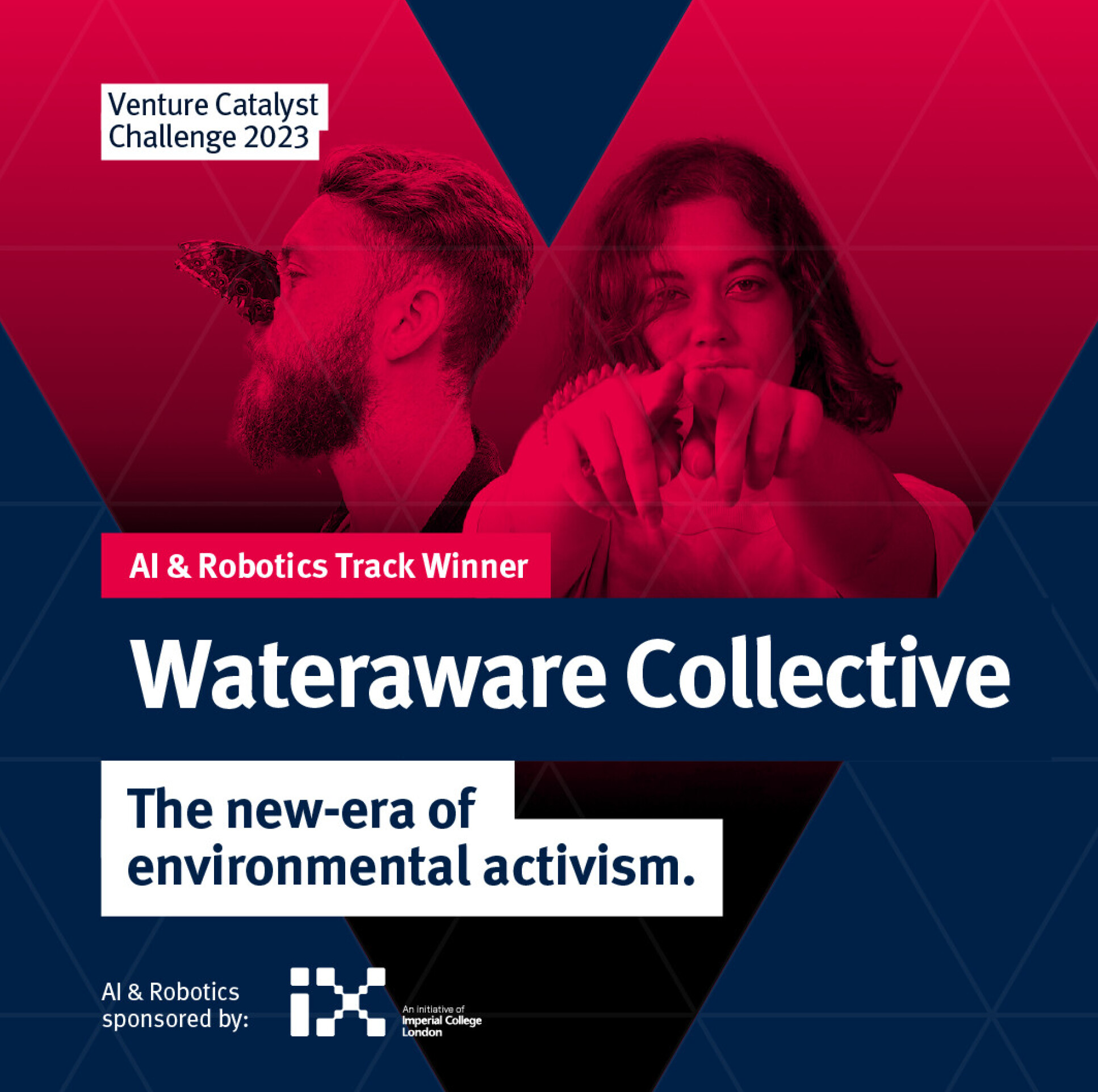
Creative and Consumer (sponsored by Imperial College London): PulpaTronics
RFID tags are a key tool in supply chain and inventory management to identify and track items. However, these tags are usually made of metal antennas and microchips that are costly and hard to recycle, presenting a sustainability problem due to their short life cycle.
PulpaTronics, led by Innovation Design Engineering students Chloe So, Barna Soma Biro, Rui Ma and Jingyan Chen, has developed paper-based alternatives to existing tags which could minimise the resources required, simplify the manufacturing process and streamline recycling.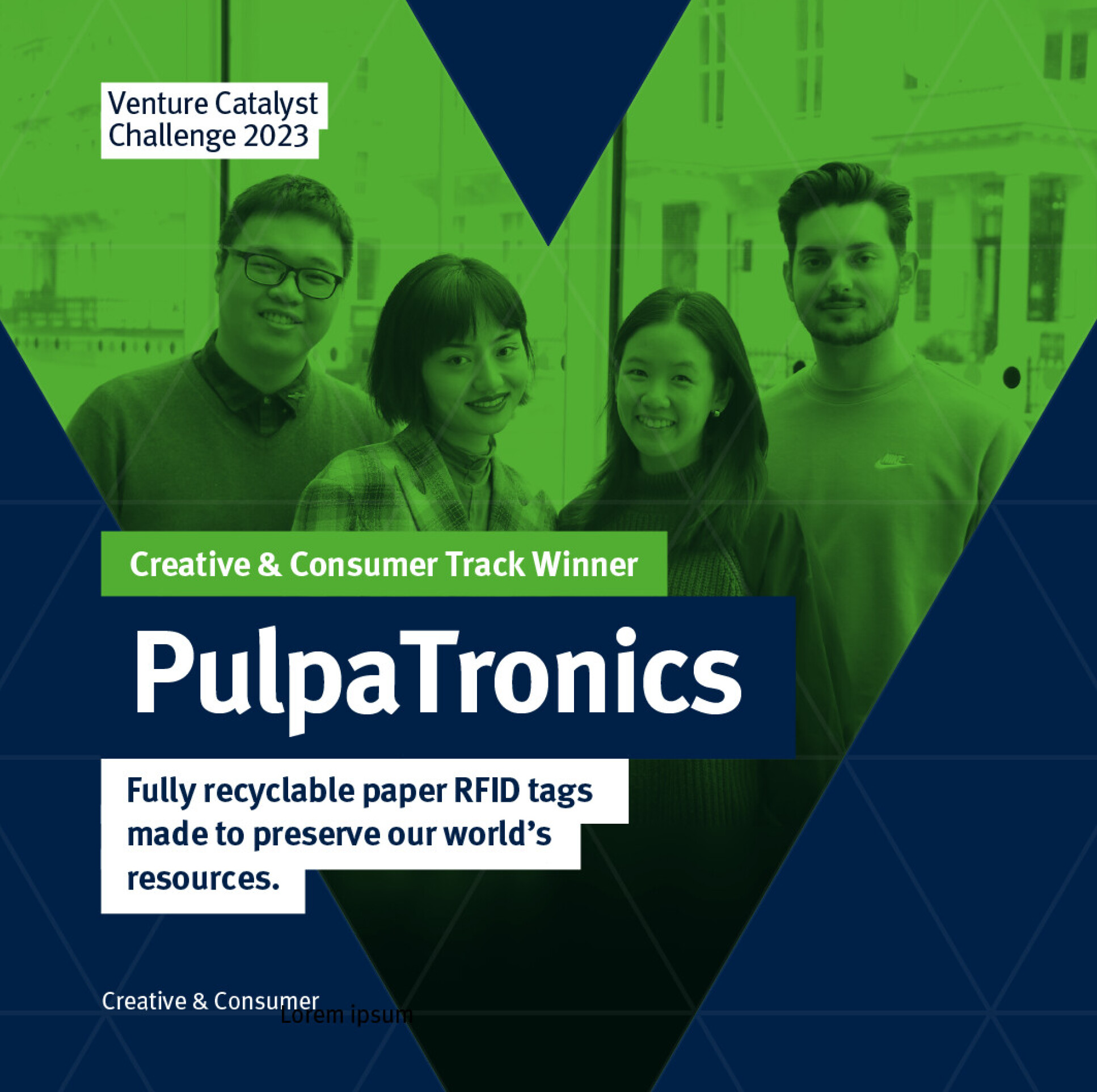
Digital and Finance (sponsored by Santander Universities): Claimed
Claimed, led by Gideon Gaspard and Mechanical Engineering PhD students Egheosa Ogbomo and Amran Mohamed, aims to use generative artificial intelligence (AI) to improve productivity for patent attorneys. Traditional approaches to drafting patents and identifying prosecution strategies can be time-consuming, with attorneys having to work up to 80 hours to complete the patent process, the team say. This means attorneys are often working to strict deadlines and budgetary rules, leading to high levels of stress in the industry.
The Claimed toolkit could allow attorneys to accelerate the patent drafting process and identify strategies for prosecuting office actions more quickly.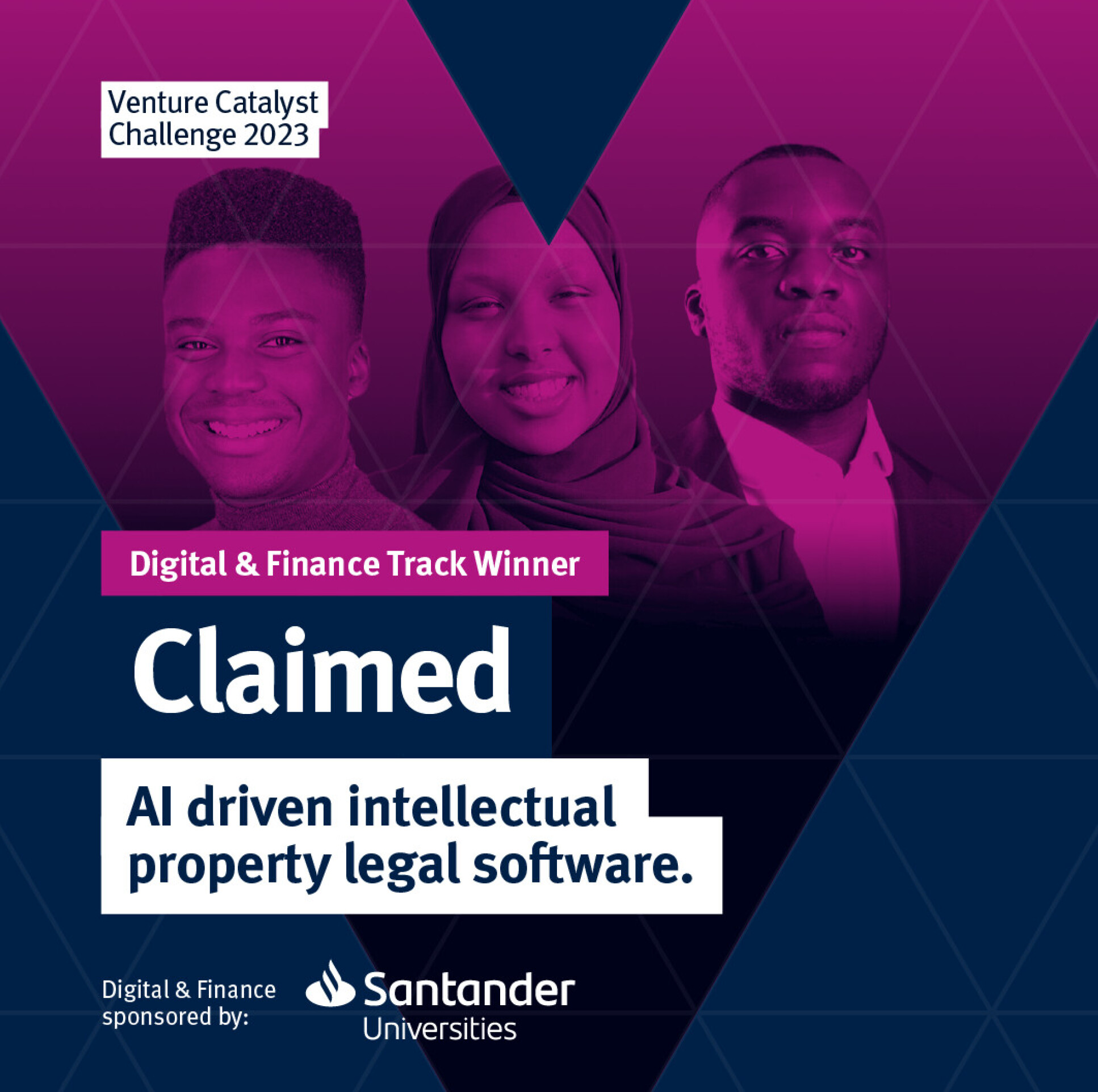
Energy and Environment (sponsored by Undaunted): WaveX
Wave energy could be a key part of the transition from fossil fuels to renewables, but previous attempts to harness it have been too costly and unreliable. WaveX uses energy converters that can be installed by embedding flexible structures under the seabed.
This makes the converters more reliable as they are protected from storms and could significantly reduce costs, as large metallic support structures are replaced by the seabed itself.
The company is co-founded by Mechanical Engineering graduate Thomas Allen, Environmental Graduate Will Evans, PhD student Jacob Francis, alongside Clement Puech and Olivier Bourdin.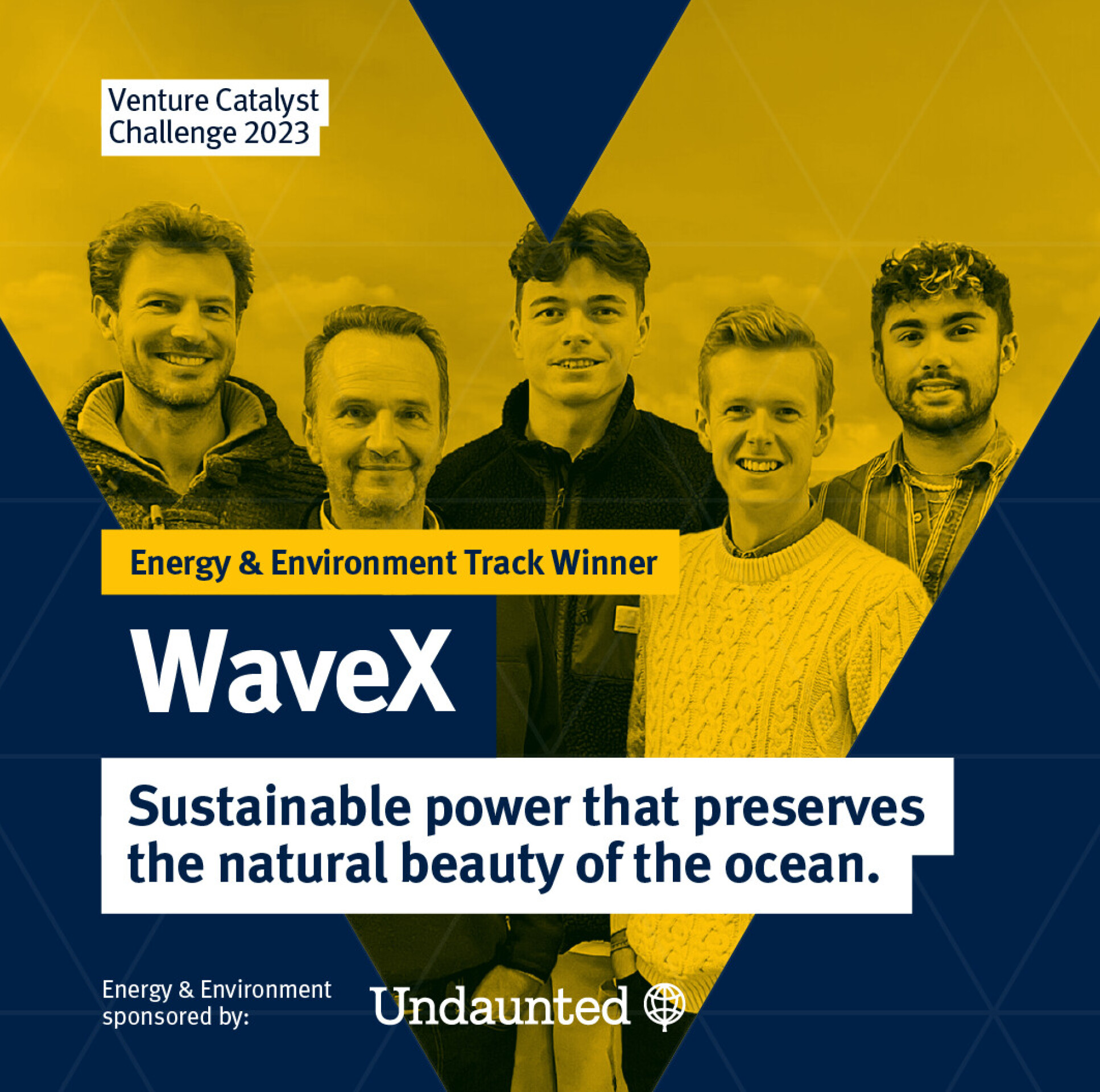
Health and Wellbeing (sponsored by Novartis): FlexiFit
FlexiFit - a startup co-founded by Medical Device Design and Entrepreneurship graduate Dr Johannes Staufenberg and Research Associate Dr Clement Favier - has developed the world’s first size-adjustable prosthetic cover. It is a standard practice to cover the cylindrical metal pylon used in prosthetic limbs with a rigid cosmetic cover to produce a natural-looking calf-shaped bulk.
However, this means that families of children with lower limb loss can spend up to £12,000 on multiple covers as their child grows, while adults can spend up to £1,000 per made-to-measure device, the team say.
The FlexiFit device has a novel extension mechanism which is hidden within the body of the prosthetic cover, allowing extension at multiple stages so amputees can fit their cover to a limb of any length.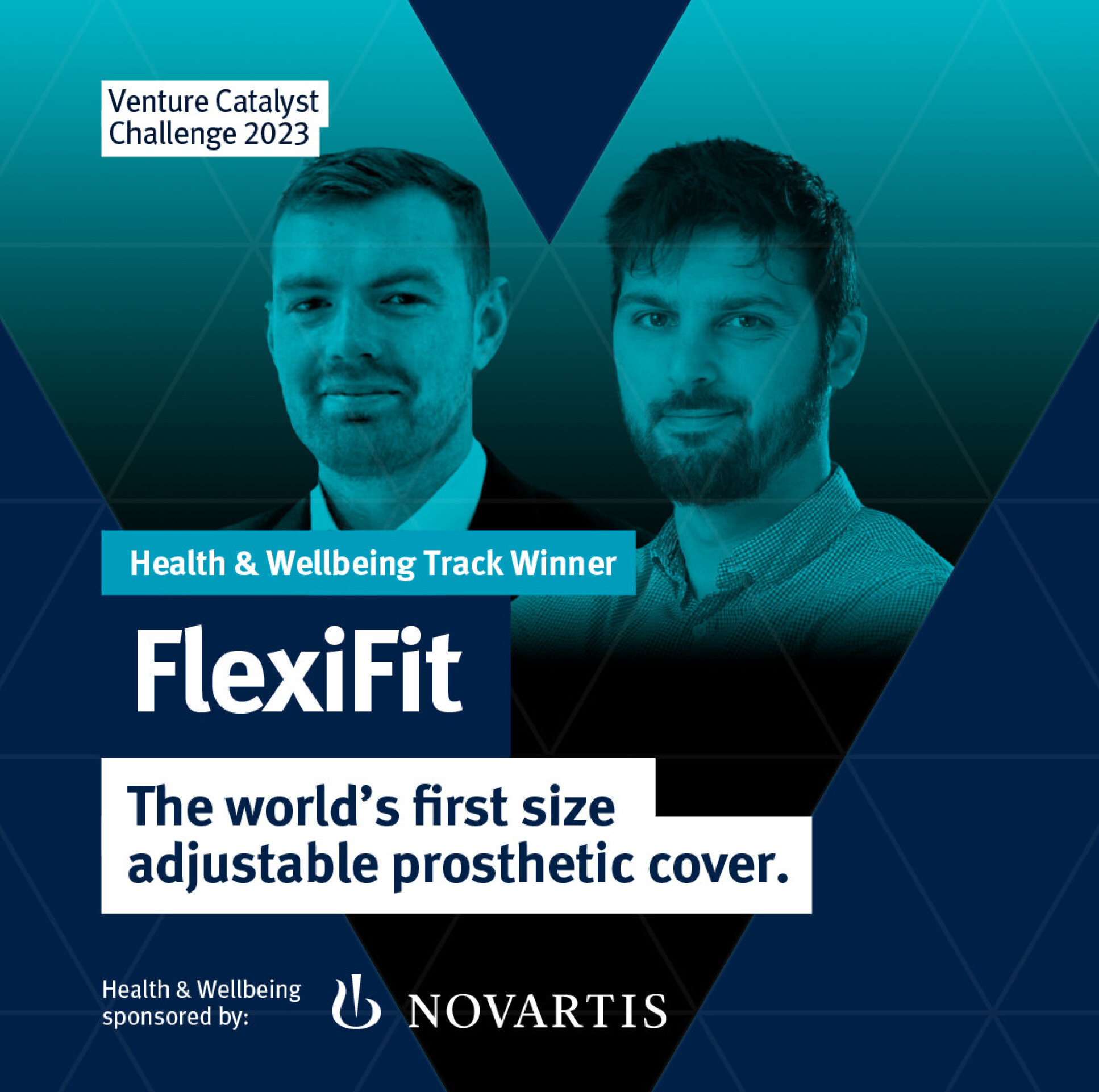 Guests are warmly invited to experience the teams' inspiring pitches in-person at the Grand Final on Wednesday 10 May at Imperial College London. In addition to the main prize announcement, the winners of four special ‘moonshot’ and ‘social impact’ awards will also be revealed on the night.
Guests are warmly invited to experience the teams' inspiring pitches in-person at the Grand Final on Wednesday 10 May at Imperial College London. In addition to the main prize announcement, the winners of four special ‘moonshot’ and ‘social impact’ awards will also be revealed on the night.
Tickets are free and available on a first-come-first-served basis, register here: https://hubs.ly/Q01Lt9Cy0
To find out more about this year's teams and discover their novel innovations, visit the dedicated 2023 blog: https://lnkd.in/e6qt_BPm
Article text (excluding photos or graphics) © Imperial College London.
Photos and graphics subject to third party copyright used with permission or © Imperial College London.
Reporter
Conrad Duncan
Communications Division